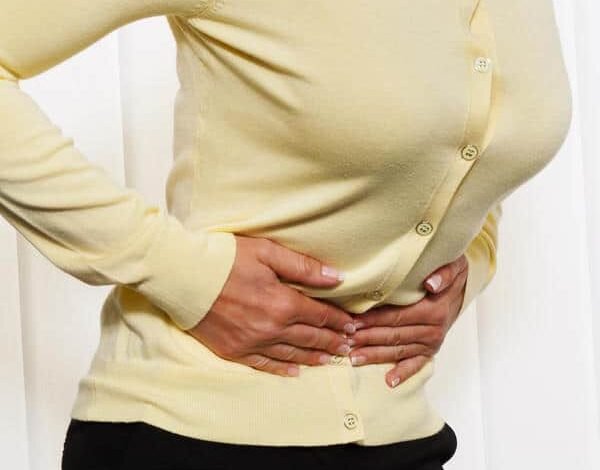Constipation

What is constipation?
Constipation or constipation is a condition that is characterized by a reduced frequency of bowel movements – peristalsis or difficulty having a bowel movement.
With constipation, it is usually more difficult for a person to have a bowel movement due to the lower-than-usual amount of water in the stool. Constipation is a symptom, not a disease.
In general, it should be an accurate description, because it manifests itself in a different way for each person. In addition, since we generally do not discuss the frequency of our bowel movements and do not observe each other’s bowel movements, it is often difficult for us to determine whether we are having less frequent bowel movements or more difficulty defecating than others. people.
The normal frequency of bowel movements varies greatly, starting from three bowel movements a day and reaching three times a week. However, if a person has some frequency of defecation, which suddenly changes at a certain moment and this new condition persists for a long time, this is a reason for him to seek medical help.
In general, a doctor’s consultation should be done if a person notices that he has not had a bowel movement for more than three consecutive days, and as the intestinal contents harden, a person must exert considerable effort, which can to be accompanied by pain during defecation.
There is a misconception that with constipation the waste products that are thrown out of the body through defecation are reabsorbed by the body and this can be dangerous to a person’s health and even shorten his life.< /p>
And that is why some people fear that it is possible to be poisoned by their own feces if it remains for a longer period in the body.
None of this is true. There is also little evidence that enemas improve the health of people with normal bowel function.
Elderly people are five times more likely to get it than young people.
Symptoms of constipation
For everyone in this condition, the symptoms are individual depending on age, diet and what was his normal frequency of defecation. We will limit ourselves to the general symptoms that a person can have with constipation:
- Difficulty starting or finishing defecation;
- Difficulty passing stools;
- After prolonged straining, hard stools pass;
- If the affected person has irritable bowel syndrome, which is accompanied by throbbing pain in the abdomen, increased gas, a feeling of a swollen abdomen, as well as a change in the peristalsis of the intestines.
- If the affected person has intestinal obstruction, which causes nausea, vomiting, lack of peristalsis and impossible passage of gases.
- Coated tongue, bad breath (halitosis) and bad taste in the mouth.
< li>Swollen abdomen, headache and loss of appetite;
Treatment of constipation
Pure olive oil relieves constipation as it stimulates peristalsis and if taken regularly, constipation is very likely to be completely overcome. You will need:
- 1 tablespoon of olive oil;
- 1 teaspoon of lemon juice as desired.
Take one tablespoon in the morning on an empty stomach< /strong> as it works best on an empty stomach, so if you have eaten before it is best to wait a few hours before taking it.
You can mix it with lemon juice to enhance the taste and because lemon juice is also a natural remedy for constipation.
Physical activity is also very useful for constipation, because if we want our bowels to move normally, we need to move as well.
Set a time of day when you will empty your bowels – create something like a schedule and when you stick to this routine for a while, about 21 days is usually needed, you “teach” your colon when to empty its contents and every day at the same time you will receive an urge to defecate.
Besides the use of pure olive oil and physical activity, there are other methods and approaches that can help in dealing with constipation.
One of the key strategies to prevent constipation and improve peristalsis is related to diet. The introduction of fiber-rich foods into the diet is essential.
Fiber supports the normal functioning of the intestines by providing the necessary amount of dietary fiber and stimulating peristalsis.
Vegetables, fruits, whole grains and legumes are excellent sources of fiber and should be included in the daily diet.
In addition, it is important to keep the body hydrated. Drinking enough water helps to soften stools and ease passage through the bowels.
The recommended amount of water to be consumed varies according to individual needs, but around 8 glasses (about 2 liters) per day is generally recommended.< /p>
Adding probiotics to the diet can also have a positive effect on the gut.
Probiotics are good bacteria that help maintain the balance of microbial flora in the gut and facilitate digestion.
Yogurt, yogurt and kefir are good sources of probiotics and can be included in the daily food program.
In addition to a change in diet, regular physical activity is important to stimulate peristalsis and maintain normal bowel function.
Walking, running, swimming, or other opportunities for moderate to vigorous physical activity can be helpful in facilitating bowel movements and preventing constipation.
Mental health can also play a role in bowel function. Stress and anxiety can lead to changes in peristalsis and the digestive process.
Finally, in cases where constipation occurs frequently and symptoms are severe or persist for a long period of time, it is important to seek medical advice. < /p>
The doctor can assess the condition and offer additional methods of treatment and support.



